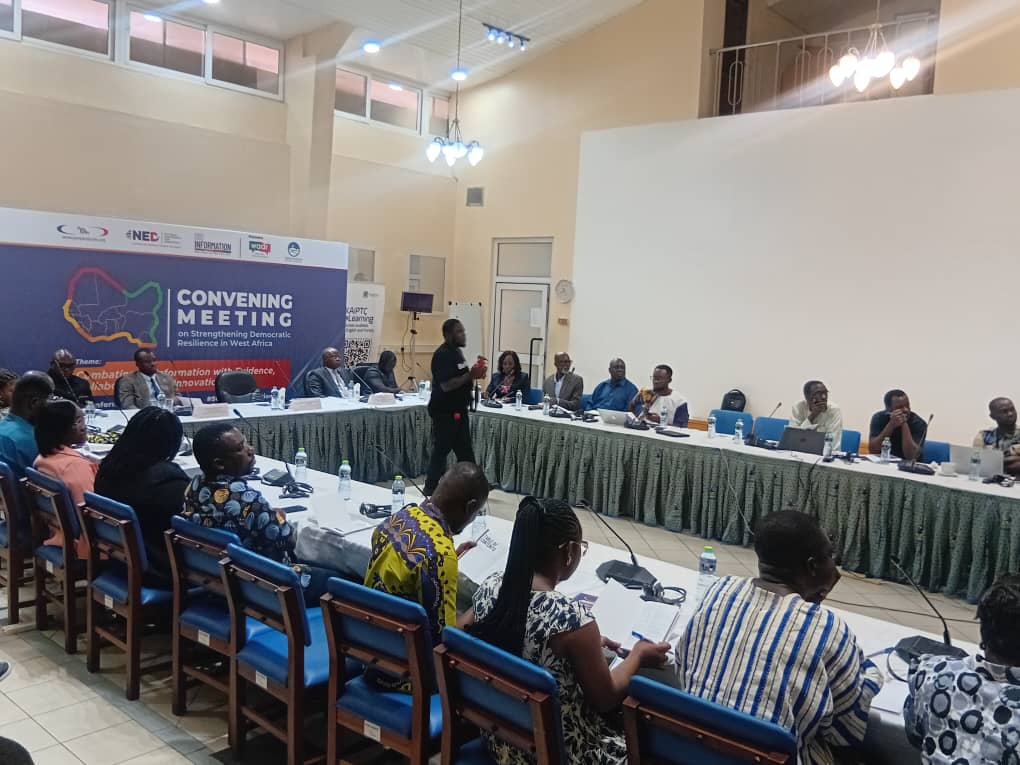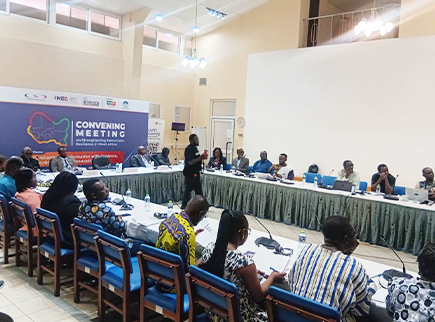Ghana made a score of 95.8 per cent for universal detection of misinformation and robust verification processes, ranking best among three other West African nations, according to the Disinformation Index Report by Penplusbytes.
The report, supported by the National Endowment for Democracy (NED) in partnership with West Africa Democracy Radio and the Sahel Institute for Democracy and Governance, sheds light on the spread of election and post-election disinformation in Ghana, Côte d’Ivoire, Mali, and Burkina Faso.
The index noted that while Côte d’Ivoire scored lower in detection at 42 per cent it compensates with stronger interpersonal and civic action.
Her citizens are more willing to confront purveyors of false information and report it to platforms, demonstrating a readiness to act once disinformation is identified.
In contrast, countries in the Sahel, particularly Mali and Burkina Faso, exhibited the lowest resilience to disinformation.
The report found that citizens in those nations are more likely to disregard false information and deeply internalise pro-military narratives, which reflects constrained civic spaces and state-sponsored propaganda.

The findings suggest that “democracies are more exposed to electoral and corruption-related disinformation but retain higher resilience, while military regimes are both more vulnerable and more reliant on disinformation as a tool of regime legitimacy.”
Despite Ghana’s high score, the Disinformation Index also highlighted its vulnerabilities.
It noted that the 2024 elections witnessed a surge in AI-generated disinformation, including fake graphics and manipulated videos.
Penplusbytes stated that military-led regimes, such as those in Mali and Burkina Faso, are experiencing severe, state-sponsored disinformation that is not limited to electoral periods but is continuous and systemic.
The report said, “According to the index, disinformation in these countries is actively deployed by authoritarian regimes and foreign actors, particularly Russian-linked networks, to legitimise military rule, suppress dissent, and delegitimise democracy.”
The report also noted that across all four countries, the index identified common structural vulnerabilities related to electoral integrity, outdated legal frameworks, and limited public awareness of fact-checking platforms.
To address these challenges, Penplusbytes urged the governments of these countries to invest in legal reforms and real-time disinformation detection systems.
It also advised Civil Society Organisations to expand grassroots media literacy programmes and equip media professionals with fact-checking tools.
Penplusbytes recommended that regional bodies, notably the Economic Community of West African States (ECOWAS), should prioritise the detection of disinformation within its peace and security frameworks and establish cross-border monitoring hubs.

